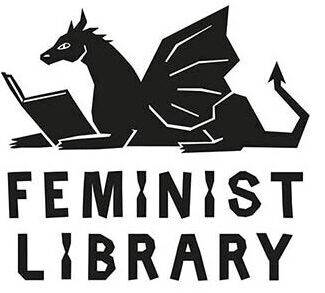On international anti-gender wars & the importance of intersectional feminist solidarity
On international anti-gender wars & the importance of intersectional feminist solidarity
By Magda Oldziejewska
Over the past couple of months, the Feminist Library has organised a number of online events. As much as the lockdown has meant that we have had to close our physical doors to visitors, it has also proven fruitful in terms of opening up new avenues for connecting, especially internationally. We have welcomed visitors from across many borders to our events, as well as starting a new international book club aiming to build solidarity across cultures, languages and experiences.
Perhaps the most eye-opening of our online meetings have been the ones on the international LGBTQ+ community struggles. Over the past few weeks, we met queer activists from Armenia, Bangladesh, Poland, Romania, and the UK, who shared their stories with us. Here’s a very short round up of what we found out.
In Poland, just in the last 6 months, feminists and LGBT+ activists have had to fight against ‘LGBT-free zones’, another anti-choice law proposal, causing mass (socially distanced) protests in the middle of COVID, massive fines and prison threats for protesters, for as little as a rainbow halo poster, a secretly passed new legislation introducing higher criminal penalties for abortion support, under the guise of COVID support bill, and the Polish president speaking out openly against LGBT+ people, calling us ideology and promising to fight it (us!), by, amongst other means, proposing a ban on gay adoption as re-election campaign pledge. All this, as shocking as it is, comes as little surprise to feminist and queer activists in Poland, who have been fighting against constant wave of attacks on their human rights for the past 5 years, since the right-wing PiS (‘law and justice’!) party came into power. On the bright side, there has been a massive push back amongst activist communities, as well as solidarity from around the world. And in recent news, a couple of local courts in ‘LGBT-free zones’ have deemed these as unconstitutional.
Similarly, in Romania, following years of attacks, feminist and LGBTQ+ communities are currently fighting against a proposed ban on gender education (you can read more about this and sign the petition here). Romanian activists who spoke at our solidarity event on the 6th July, told us about the potential far-reaching impacts of the proposals, as they aim to ban any level of gender educational activity, not just gender studies, as it is commonly misunderstood in the media coverage. This means anything from conversations about gender to combating violence against women! At the same time, we also heard that these moves have led to an unprecedented level of protests in Romania.
Despite the local specificities between these countries, these attacks on human rights are interconnected, as is the growing global ‘anti-gender’ movement. Organisations leading on this are international in reach and have a growing level of transnational influence. At our Romanian solidarity event, we heard about their moves for political influence within the European Union. Although very little is known about these organisations in the UK, it would be a mistake to think that it’s because they don’t also have a presence here.
In the most recent news from Poland, the organisation behind the Stop Abortion proposal (for a total ban on abortion) in 2016, which sparked the biggest Women’s Strike in the history of the country, is now proposing to legalise domestic violence! This might seem ridiculous to anyone from outside Poland reading this. And yet, there are plenty of other examples of similar attacks across the world. We focus on Poland and Romania here in a follow up to our recent solidarity events with speakers from these countries. But since working on these, we have heard of similar moves in countries such as Ukraine, Hungary, Russia, and the US!
This is a timely reminder that we need to stop taking our hard won rights for granted and start connecting the dots before they gain any more influence. The forces that believe equality and human rights are a threat are far from asleep and are, in fact, growing globally, and we need to remember that and build a stronger, more internationally united feminist movement to match.
You can read about other examples of this international anti-gender backlash around the world in this recent Vogue article. OpenDemocracy and Pink News are the other two media outlets where you can read about these issues in English. We need to continue working on building our international solidarity to combat this dangerous global anti-gender movement!
Join us! We are working on more of these events, as well as building our resources and networks to work towards the best ways to build international solidarity. At the Romania solidarity meeting, we also talked about the potential of a large international mapping project that would enable us to track these changes in all countries across Europe, and possibly beyond.
Sign up to our newsletter to keep track of all the latest. Contact me, magda@feministlibrary.co.uk to find out more and to get involved.
Suggested further reading on Poland and Romania:
- Anti-gender wars – Poland & international – some background reading:
⦁ ‘Gender as Ebola from Brussels: The anti-colonial frame and the rise of illiberal populism’
⦁ ‘Gender Ideology: Weak concepts, powerful politics‘
⦁ ‘Worse than Communism and Nazism Put Together: War on Gender in Poland‘
- Articles with more details and background on the situation in Romania:
⦁ ‘’Our Strategy is Visibility’: The fight for LGBT rights in Romania’
⦁ ‘How Romania’s Feminists are Fighting Back’
⦁ ‘How Romania Became a Battleground in the Transatlantic Backlash against LGBT Rights’
